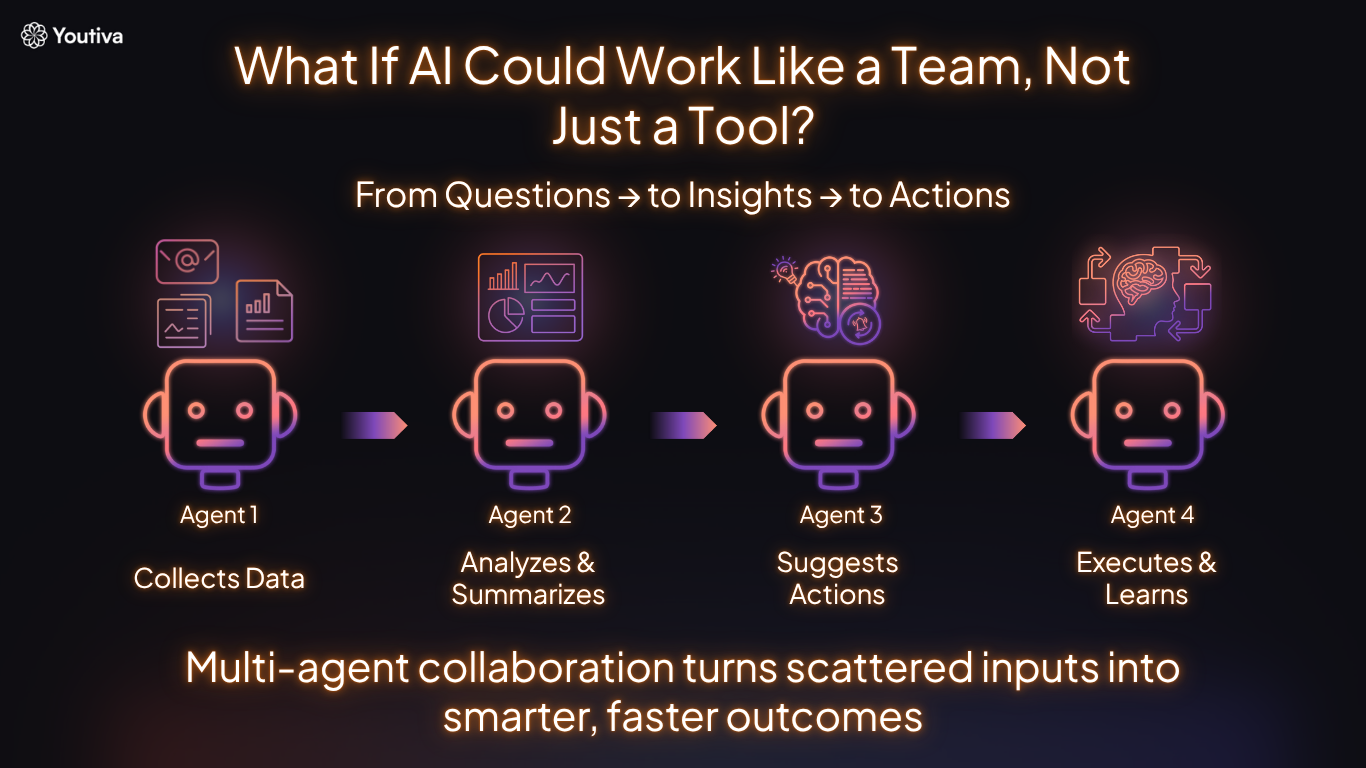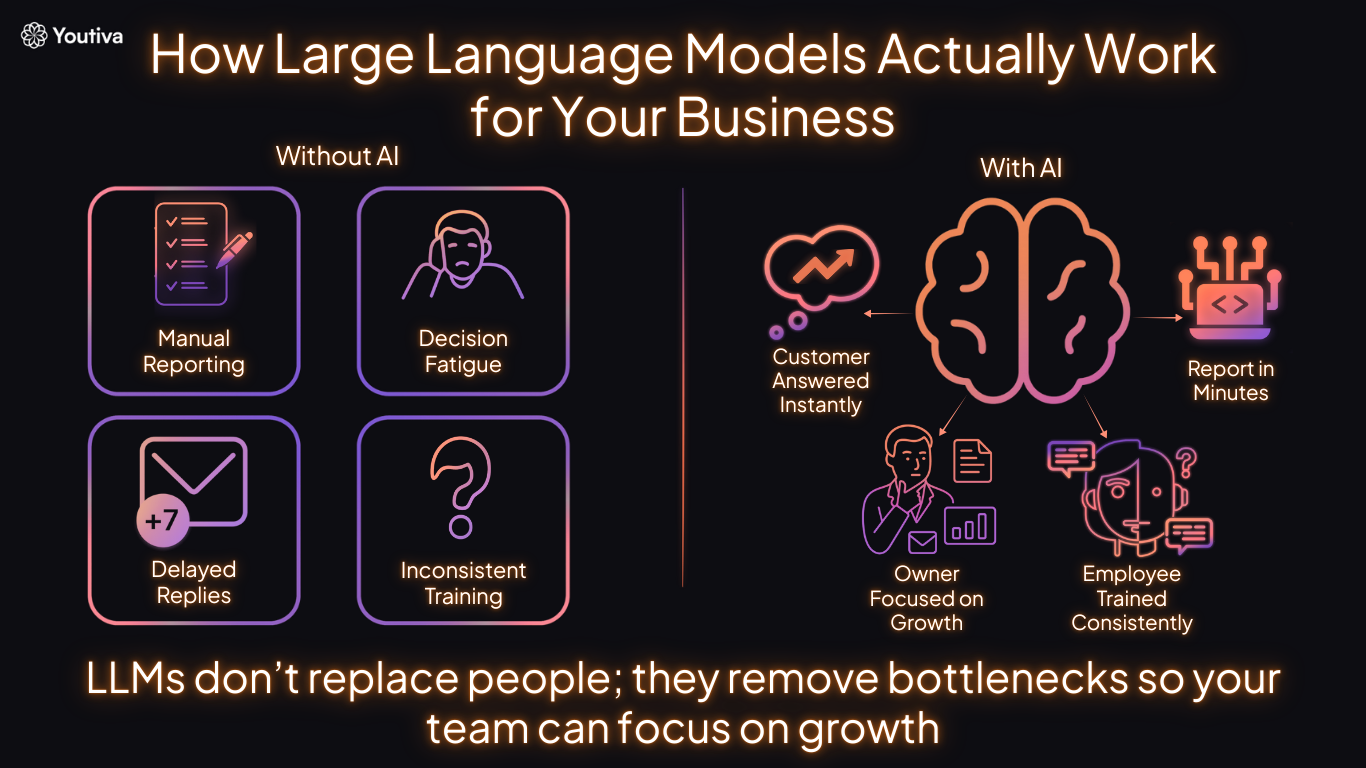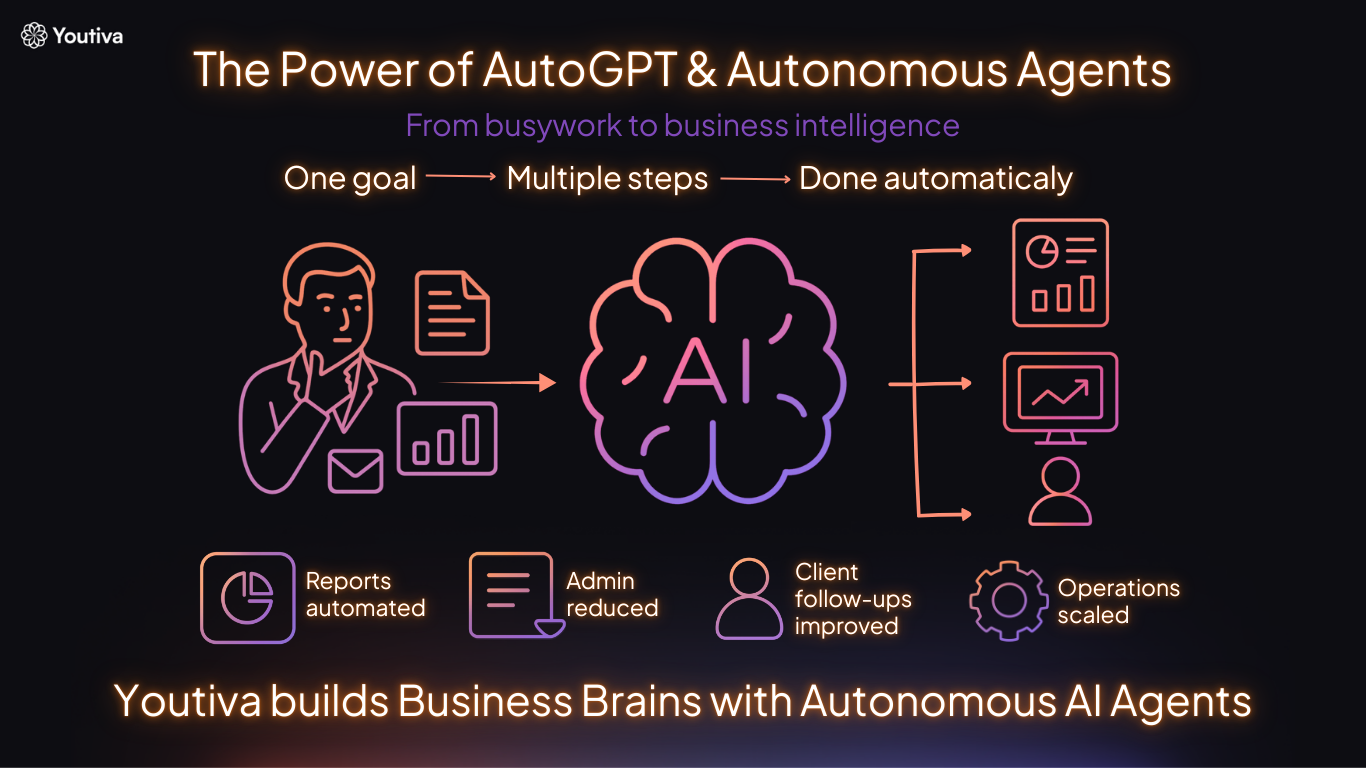Most Teams Don’t Fail From Bad Answers; They Fail From Asking the Wrong Questions
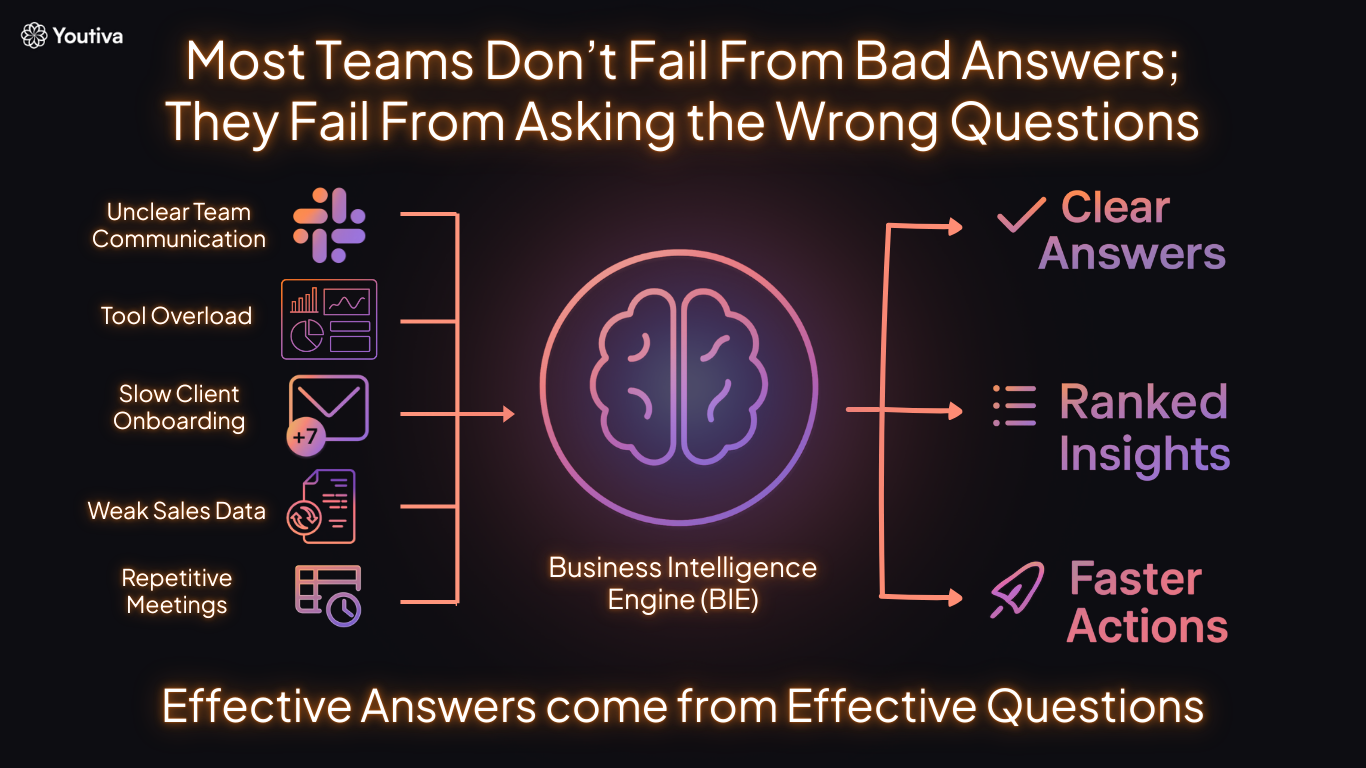
If you’re a business owner, you probably don’t feel like you’re drowning in answers; you feel like you’re drowning in information. Slack threads, CRM dashboards, client emails, Google Docs, reports… all telling you something.
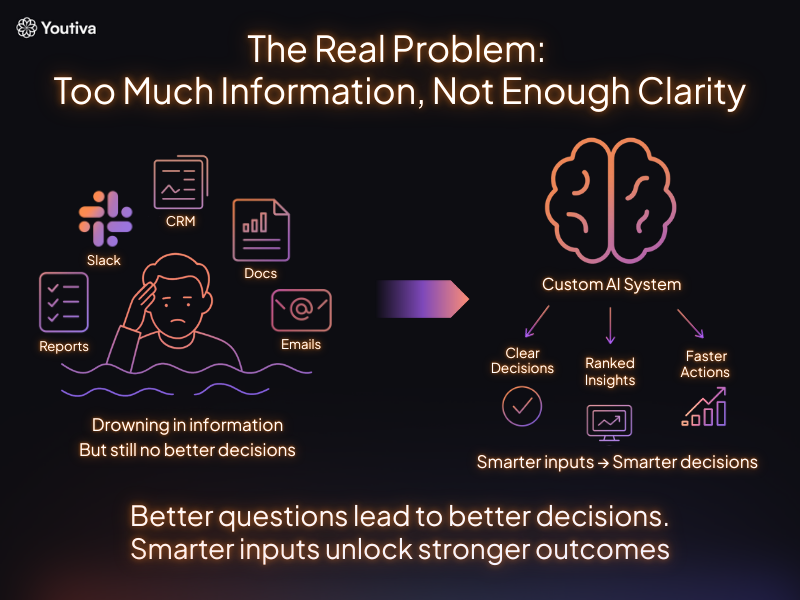
The problem? Most of it doesn’t help you make a better decision.
According to Harvard Business Review, leaders who consistently ask better questions make faster, more confident decisions and drive stronger business outcomes . Yet most teams don’t have a system for asking the right questions at the right time.
That’s where smarter inputs and custom AI systems come in.
5 Pain Points That Drain Your Decision-Making Power
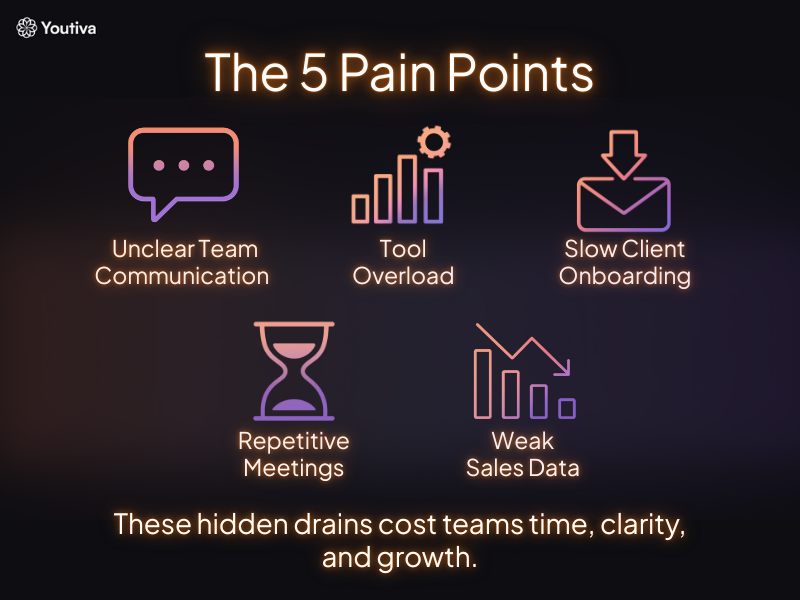
1. Unclear Team Communication
Your Slack is buzzing, but when you ask, “What’s the status of our biggest client project?” you get five different answers.
Why it hurts: Decisions get delayed. Clients feel the chaos. You feel the stress.
2. Tool Overload
You’ve got a CRM, a project tracker, an analytics dashboard — but none of them talk to each other.
Why it hurts: Instead of clarity, you get fragmented views. McKinsey’s 2024 AI report shows that decision-makers waste 20–30% of their time searching for information instead of acting on it .
3. Slow Client Onboarding
New clients ask the same questions. Your team scrambles to send documents, links, and answers.
Why it hurts: Onboarding takes weeks instead of days, delaying revenue and eroding trust.
4. Weak Sales Data
You have pipeline reports, but when you ask, “Which deals are most at risk this quarter?” you get silence, or a spreadsheet that doesn’t actually help.
Why it hurts: Gut decisions replace data-driven ones. Growth slows.
5. Repetitive Meetings
Every week, you spend an hour aligning on information your team should already know.
Why it hurts: Time wasted in meetings is time not spent closing deals, delighting clients, or improving operations. PwC found that leaders who deploy AI for information gathering cut meeting times by up to 30% .
The Solution Path: Smarter Questions + Smarter Systems

Here’s the shift:
It’s not about digging through more dashboards. It’s about asking smarter questions and having an intelligent system surface clear, data-backed answers.
That’s exactly what a Business Intelligence Engine (BIE) powered by AI does.
Instead of asking your team, “How’s sales looking?” you ask your system:
“Which deals under $50k are at risk because of slow response times?”
And instead of guesswork, you get:
- A ranked list of deals.
- Notes pulled from your CRM and emails.
A suggested next action for each.
Mini-Cases: Before vs. After
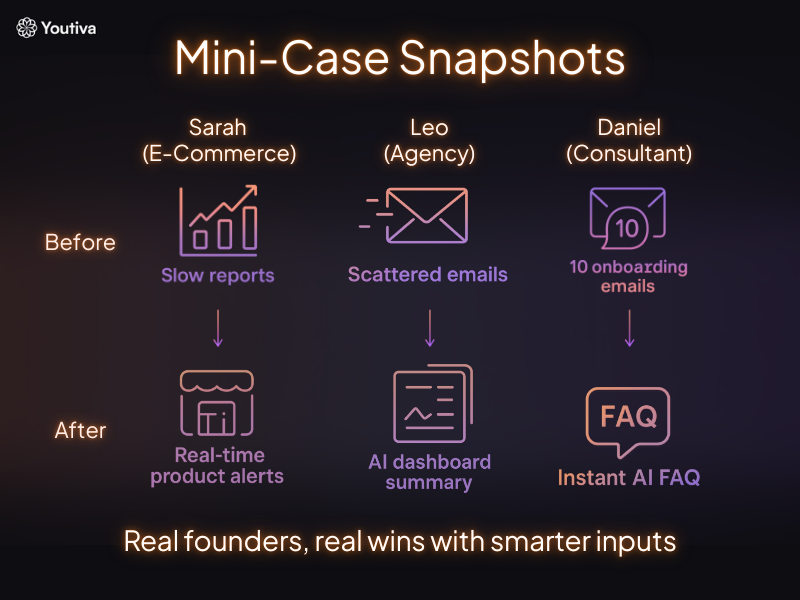
- Sarah (E-Commerce Owner)
- Before: Weekly sales report arrived three days late, forcing her to react slowly to revenue dips.
- After: AI flagged in real time when a product category underperformed, letting her launch a flash sale the same day.
- Before: Weekly sales report arrived three days late, forcing her to react slowly to revenue dips.
- Leo (Agency Founder)
- Before: The Team spent hours recapping client feedback from scattered emails.
- After: AI summarized all client comments into one dashboard, highlighting the top three recurring issues.
- Before: The Team spent hours recapping client feedback from scattered emails.
- Daniel (Consultant)
- Before: Every client onboarding required 10 back-and-forth emails.
- After: AI assistant handled FAQs instantly, cutting onboarding from 2 weeks to 3 days.
- Before: Every client onboarding required 10 back-and-forth emails.
Tactical Advice You Can Use Today
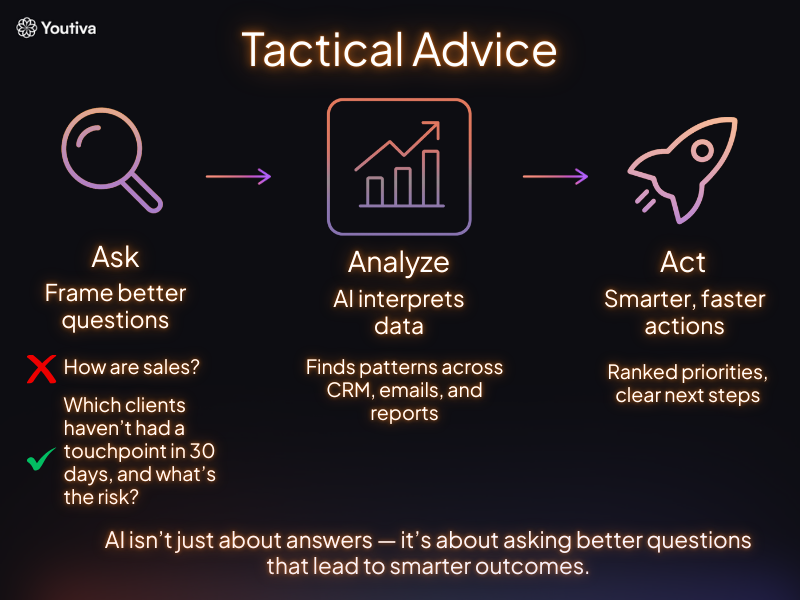
- Use the “Ask → Analyze → Act” Framework
- Ask: Start with a specific, valuable question.
- Analyze: Let AI pull insights from your CRM, docs, or emails.
- Act: Decide or delegate with confidence.
- Ask: Start with a specific, valuable question.
- Smarter Prompts = Smarter Outputs
Try replacing vague questions with focused ones:
- Instead of: “How are sales?”
- Ask: “Which clients haven’t had a touchpoint in 30 days, and what’s the risk?”
- Instead of: “How are sales?”
- Before/After Example of Inputs
- Before: “Give me last month’s revenue.”
- After: “Compare last month’s revenue to the same month last year, and tell me which product line grew fastest.”
- Before: “Give me last month’s revenue.”
Final Thought
Most businesses don’t suffer from a lack of data. They suffer from a lack of clarity.
By asking smarter questions and using AI systems that actually understand your workflows, you can make faster, clearer, and more confident decisions.
You don’t need more dashboards. You need better inputs.
Here’s one simple next step: Send us 3 recurring questions you wish your team could answer faster.
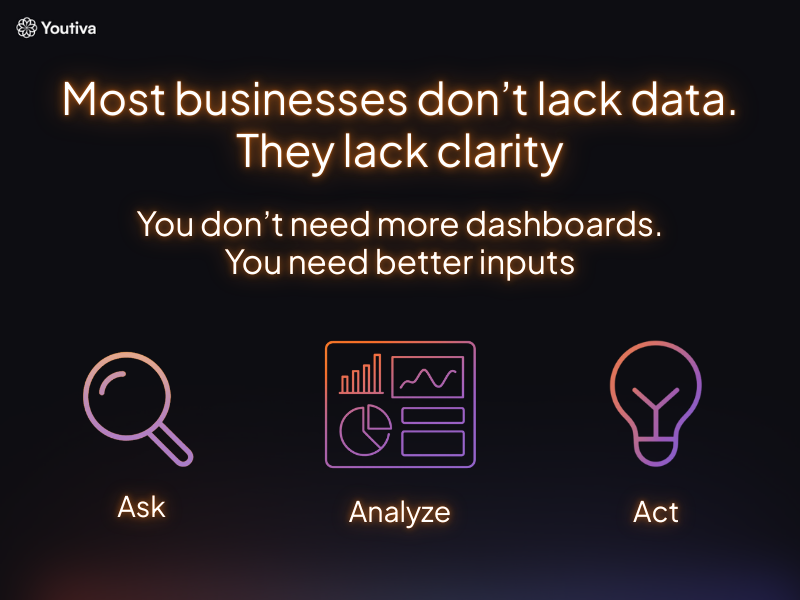
Book a free consult with Youtiva — and we’ll walk through real examples in your business.
.png)


